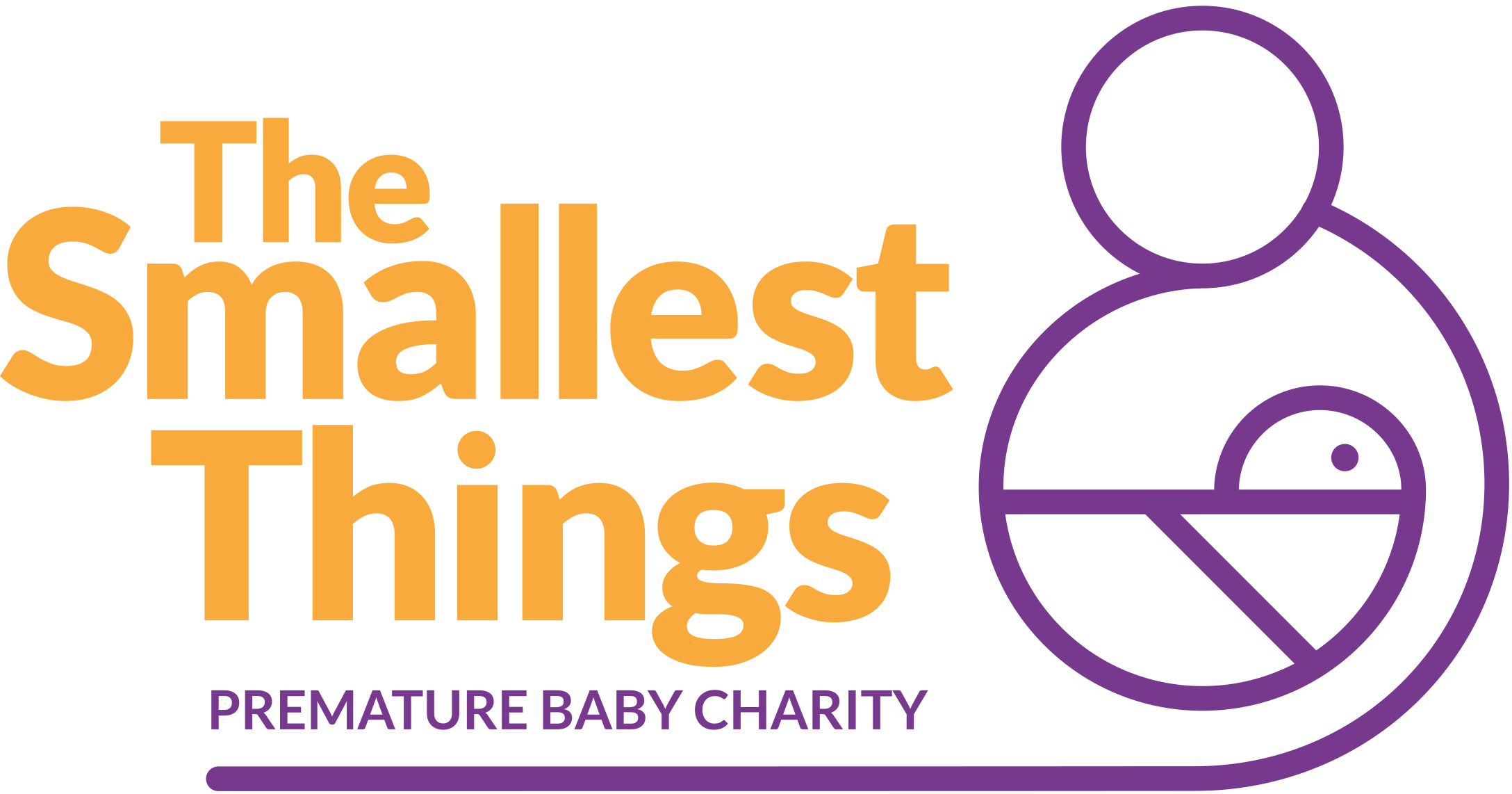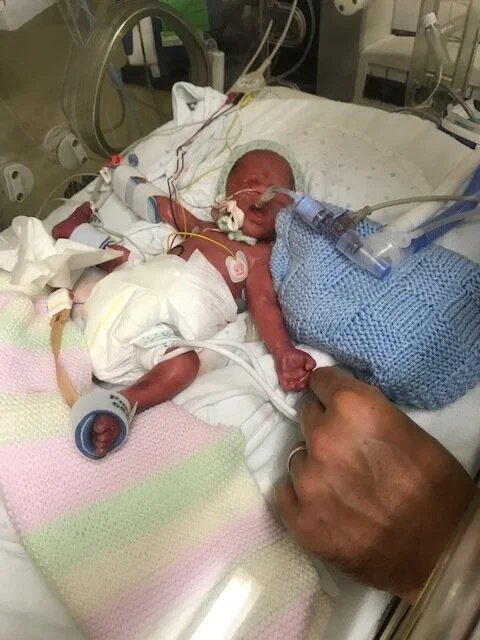Thank you to my employer for supporting parents like me
‘I’m sorry, but you’re having your baby tonight.’ That was the last thing I expected. Hearing the doctor apologetically confirm my labour filled me with dread. This should be one of the most magical (albeit painful) times of your life. Welcoming your first child into the world. Yet the medic’s words propelled me into total self-abandonment. This was a failure. My baby was being let down. I still had 13 weeks to go. This is not how this was meant to happen.
I wasn’t ready. We weren’t ready. But apparently our baby was. For whatever reason, he couldn’t stay in there, but I had no idea why. And I had no time to even find out what was going on. They had only agreed to me going to my local labour ward rather than taking the 20-mile journey to Brighton for specialist care as my husband was working a night shift and I couldn’t get there without waiting for a taxi. They told me on the phone, ‘We can’t treat a baby born under 32 weeks.’ Mine was 27. What on earth did that mean? Would it be born alive? If it was, and they can’t treat it here, what will happen to it? Can they keep it alive? I had so many questions and no time to ask. The declaration that I was in labour was all the confirmation my body needed to take over and let nature take its course. Just 40 minutes after hearing those fateful words, our baby – who, at 2lb 6oz (1.08kg), could be held in the palm of a hand – was born.
Born into silence
Remy was blue, he wasn’t breathing. And those minutes whilst they resuscitated him and I waited to hear the faintest of cries felt like forever. Time actually did stand still. I couldn’t see anything for the countless people in the room, but they were working on him beyond the foot of the bed, whilst the midwife tried to keep my attention on something else, anything else. He was whisked away before I could even glimpse him, so they could make him stable. I didn’t even know I’d given birth to a boy. The midwife ensured I was comfortable; all the trolleys, trays, monitors, equipment and people left the room, and I was alone. My husband missed the whole thing. He drove far too fast to get there but there still just wasn’t time. I sat in the room for the next 15 minutes before he arrived, on my own, wondering if it was all just a hideous nightmare. I couldn’t make any sense of it. I was completely numb, in utter shock.
Fight for survival
What ensued was three months of the biggest emotional rollercoaster we’ve ever been on. In those early weeks, we just didn’t know if he would survive. There was a moment as we approached the two-week mark, where he rapidly went downhill. We knew something was wrong, but no-one could tell us what. And that is one of the worst things on an NICU ward. Knowing there is a problem to figuring out what is wrong can take days, sometimes weeks.
I left late on a Friday night, concerned at his deterioration, receiving a phone call just before 6am from a withheld number. I knew immediately it was the hospital. And they had never called me before. I answered with some trepidation, it was the registrar. She started by saying, ‘I’m sorry, but…’. No. Please, no more ‘sorry buts’. The last one was bad enough but if this is what I think it is, I have no idea where I go from here. The registrar continued, ‘I’m sorry, but Remy stopped breathing in the night, we had to massage him a number of times, we struggled to make him stable…’ In that second, I remember looking up at a card we had been sent that had the words ‘Hello Remy’ on the front, and I thought, “This is the last time I will see Remy’s name, knowing he is alive”. I know the exact meaning of the phrase ‘my blood ran cold’ now. I have never been so frightened and felt so sick in my life. The registrar continued, ‘We struggled to make him stable, however we managed to re-intubate him and he is now breathing with a ventilator back in the intensive care nursery’. Although he was gravely ill, I have never, ever been more relieved. I honestly thought that was it. Needless to say, I ran to be by his side.
Day after day, there are questions over the care your baby needs: does he need a heart operation, or will the valve close on its own?; are the continual dark patches on his lung x-rays a series of infections or does he have cystic fibrosis?; is he struggling with breathing because his milk intake is being increased too quickly or is it a gut infection that kills the bowel and has one of the highest rates of neonatal infant mortality?’ It is like being on a pendulum, and you have no idea which way you are going to swing, with the outcome at one end of the scale having life-altering impact.
Ready for the big, wide world
After three months spent sitting by his crib, our fierce little fighter suddenly started pulling the cannula out of his nose. It turns out he was ready. Having been prepared for the fact he was likely to be going home still on oxygen, just two days after his act of tube-tugging defiance, he was breathing on his own. Four days after that, we finally walked out of the hospital as a threesome, a quarter of a year after giving birth.
So that is why I am utterly overjoyed and overwhelmed at the news that Royal Caribbean Group is not only launching a new prematurity policy, but going over and above to ensure all families are supported in the event they go through a similar experience. I am so thankful and so touched that the organisation has thrown its full support behind this. I know what this will mean to families in the future who face what we went through. Knowing the business is supporting you emotionally and financially will go a long way to enabling recovery from what is a hugely traumatic experience. I’m honoured to be part of an organisation that truly cares.
Thanks to Kirsten Genard for sharing Remy’s story.



